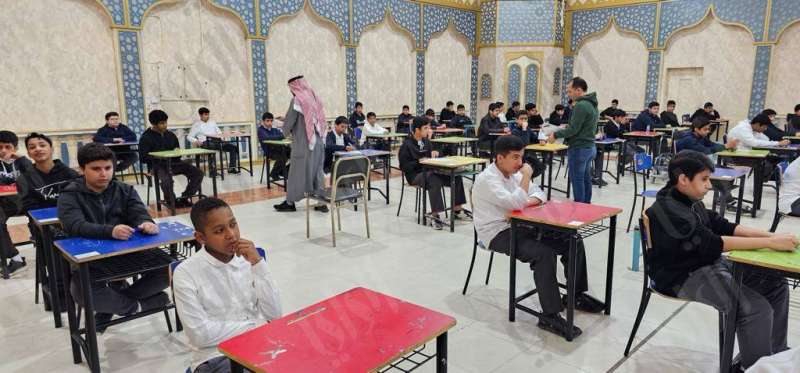“Intermediate” examinations adhere to standardized procedures across educational districts and special education institutions. These exams play a crucial role in assessing the progress and knowledge of students in various subjects. Recently, students from grades six to eleven commenced their first semester exams for the academic year 2023/2024. These exams are a significant milestone in their educational journey and require strict adherence to educational measures to ensure fairness and integrity.
One of the key concerns during these exams is preventing cheating. Educational institutions and examination committees take this matter seriously and implement stringent measures to maintain the integrity of the exams. By doing so, they ensure that students’ results accurately reflect their knowledge and abilities. The implementation of these measures is essential to create a level playing field for all students and maintain the credibility of the education system.
During the first semester exams, tenth-grade students tackled the biology test, while eleventh-grade science students sat for the geology test. Literary students, on the other hand, engaged in the French language test. Each test is designed to assess students’ understanding and mastery of the subject matter, and the results play a significant role in determining their academic progress.
While the focus is often on high school students, it is important to note that middle-grade students also participate in standardized tests. These tests are conducted at the level of educational districts and private Arab schools. The purpose of these exams is to evaluate the students’ knowledge and skills in various subjects, ensuring that they are meeting the required educational standards.
It is worth mentioning that the standardized procedures for intermediate examinations are not limited to a specific region or institution. These procedures are implemented across educational districts and special education institutions, ensuring consistency and fairness in the evaluation process. This approach allows for accurate comparisons of students’ performance and helps identify areas where additional support may be needed.
Furthermore, it is important to contextualize these procedures for an international audience. The implementation of standardized procedures may vary from one country to another, depending on local laws, customs, and educational systems. However, the underlying principle of maintaining fairness and integrity remains constant. Educational institutions worldwide strive to create an environment where students’ abilities are accurately assessed, and their achievements are recognized.
In conclusion, intermediate examinations are an integral part of the educational system. They provide an opportunity for students to demonstrate their knowledge and skills in various subjects. The implementation of standardized procedures ensures fairness and integrity in the evaluation process. By adhering to these procedures, educational institutions and examination committees maintain the credibility of the education system and ensure that students’ results accurately reflect their abilities.







